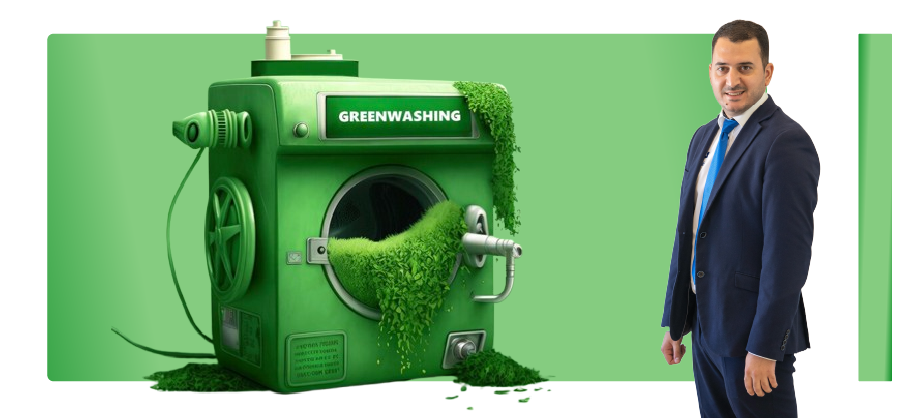Leaving aside the overall sustainability objectives, ESG began as a promising business concept, one that would allow investors and stakeholders to evaluate companies not just on profits, but on their impact on the planet and society.
Europe is still undoubtedly leading the way, as regulators have already stepped in to increase and in fact “impose” the rules of the ESG game. The shift from voluntary ESG storytelling to mandatory ESG accountability is already underway. The train has left the station.
Meanwhile, U.S. ESG Leadership unravels, so as Europe is pushing ahead, the U.S. has slammed on the train’s brakes and has seen ESG dragged into partisan politics. Under Donald Trump’s leadership and ongoing influence:
• Environmental regulations were rolled back
• Public finance arms were barred from ESG-focused investing
• And major firms began walking back their ESG commitments under pressure
The result? Whether the different policies have sustainability merits in their own right is almost secondary, because the bigger impact right now is that we currently have a global divide, where Europe enforces ESG and the U.S. increasingly politicises it. This divergence has created confusion, and this confusion has led to massive ESG uncertainty in business circles. This uncertainty has caused many ESG projects to stumble, something the sustainability agenda can little afford.
What About Smaller Businesses?
For many small and medium-sized enterprises (SMEs), ESG has always been a source of even greater confusion, cost, and compliance chaos. This global uncertainty has done nothing to further the sustainability agenda, in fact it has delayed it even further in our opinion.
Smaller companies don’t have dedicated ESG departments, in-house compliance teams, or endless budget lines for consultants. Yet they’re being asked to align with the same sustainability standards as multinational corporations, especially if they’re part of supply chains serving larger regulated entities.
dulann have seen SMEs struggle with:
- Unclear expectations from clients and regulators
- Complex reporting frameworks like ESRS
- Fear of saying the wrong thing, or doing nothing at all, and now to add insult to injury….
- European businesses, particularly SMEs exporting or sourcing internationally to the USA, see further complexity to an already shifting landscape.
So is the Greenwashing Machine Finally Dying?
Firstly, it's important to differentiate between what is a genuine environmental and sustainable agenda, and what we call “The Greenwashing Machine”. In our opinion there is nothing more important than the environmental agenda. Sustainability has never been as important, and we simply can not afford to let that agenda die, in fact we here in dulann believe that we should be doubling down on our efforts to become more sustainable.
We are however seeing a turning Point for ESG, and for Business. In our opinion Greenwashing did occur, and is still occurring. In our opinion the ESG greenwashing machine is finally starting to die, and we say good riddance.
So How did the Greenwashing Machine Start?
As ESG rose in popularity, many organisations treated ESG as a branding opportunity, rather than a transformation framework. The result was conflicting ESG scores, unverifiable net-zero claims, sustainability “goals” with no timelines, and heavily marketed annual reports with minimal operational change. This created a system ripe for greenwashing, and stakeholders began to notice.
ESG has at times been used by many as a corporate marketing tool rather than a meaningful performance standard. Companies could claim to be “carbon neutral,” “ethical,” or “sustainable” with little more than clever language, colourful reports, and loosely defined metrics. This of course has fed into American politics, and has been fodder for their dramatic policy shift.
We do believe however that the American position has also helped in accelerating a more sustainable environmental agenda in Europe at least, and greenwashing may finally be coming to an end. Like most things in business, this change is being driven, not by environmentalists, but by investors. In boardrooms across Europe. ESG is undergoing a reckoning. The greenwashing machine is breaking down, and it’s being replaced by something much more powerful: regulation, accountability, and the demand for evidence.
dulann also believes that in order to make a true impact on sustainability, the focus must shift from perception to performance. From flashy claims to credible action. From complexity to clarity, especially for SMEs.
At dulann, we’re proud to stand with small and medium-sized businesses as they take on these challenges, without being overwhelmed or left behind.
How Europe Is Cracking Down on Greenwashing
Europe have implemented, and are standing behind, regulations that represent the most comprehensive effort in the world to make ESG real, measurable, and enforceable:
- CSRD (Corporate Sustainability Reporting Directive) now requires over 50,000 EU companies to publish audited ESG data using standardised European Sustainability Reporting Standards (ESRS).
- The Green Claims Directive will outlaw vague environmental marketing unless it is backed by scientific, verifiable evidence.
- The EU Taxonomy gives financial institutions and businesses a shared definition of what “sustainable” truly means, cutting off greenwashing at the root.
How dulann Simplifies ESG for Smaller Businesses
At dulann, we believe ESG compliance should be firmly based on a foundation that delivers also on financial sustainability i.e. it should be routed in pounds, shillings and pence. Initiatives should drive real sustainability in every term including financial. ESG certainly shouldn’t be exclusive to large corporations. dulann understands the pressure on SMEs, and believes we have solutions that can deliver real environmental and financial sustainability, as well as delivering on corporate governance compliance.
dulann make ESG accessible, understandable, and achievable, without the jargon or overload.
We break complex reporting down into manageable steps, offering digital tools and expert guidance to ensure SMEs aren’t left behind.
We help you validate your sustainability messages so you can confidently promote your impact, without risk of greenwashing.
Our online platforms and blended learning programmes make ESG education scalable across your entire team, even with limited resources.
We deliver tailored support for SMEs, focusing on what matters, cutting the fluff, and aligning with your actual operations.
Conclusion: From Greenwashing to ESG Accountability and Inclusion
In our opinion, the era of performative ESG is fading fast. Greenwashing, vague commitments, and glossy reports without substance are no longer enough to satisfy regulators, investors, or the public. As Europe moves decisively toward standardised, enforceable sustainability regulation, businesses must adapt—or risk being left behind in every sense.
For large corporations, this transition is a strategic shift, but for SMEs it will be a welcome clarity.
The ESG greenwashing machine may be dying, but real, measurable impact is just beginning. And those who get it right now will lead the market tomorrow.
Talk to us today for a demo of our ESG Management System.







